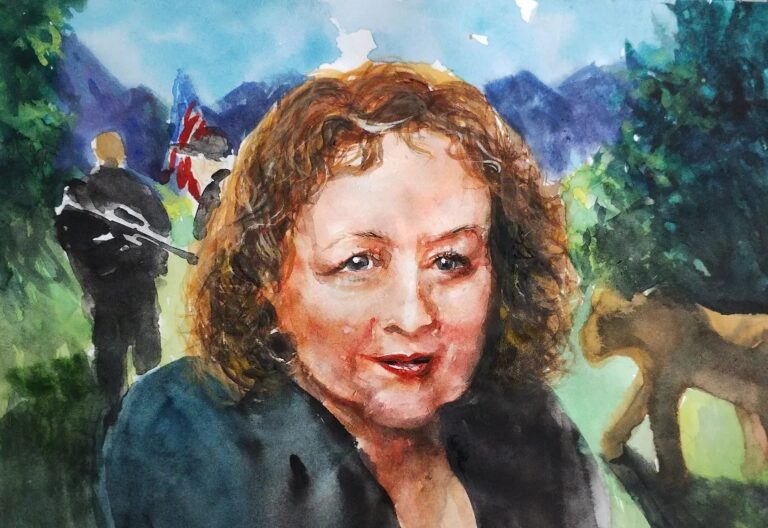Prince Harry spares no expense to embarrass himself.

If the royal family taught Prince Harry that distance was “right, safe”, and “an essential bit of being royal” (63), it certainly failed to instill in him an appreciation for why that’s so. Understanding that familiarity breeds contempt would perhaps have persuaded him to keep tales about his frostnipped “todger” (209), or cocaine fueled contempt for newspaper reporters threatening to expose his cocaine use (87) to himself. The typical memoir is either a bildungsroman retrospectively weighing up a life in its autumn for a wider audience, or a kneading into narrative form of an especially eventful life that has more life in it than years. Prince Harry has neither the years nor the storied life to pull off that feat, so he reinvents the genre. Spare is a literary whinge about the moral failings of the British mainstream media—blamed for everything from the death of his mother Princess Diana to damaging “our collective sense of reality” (229)—from someone who at 38 has become hip to the therapeutic vocabulary popularised by teens on TikTok.
On the surface the book has everything to draw in and leave spellbound an audience eager for the vicarious pleasures promised by the memoir of a rake with a heart of gold. It has accounts of the prince piloting cutting edge military helicopters, shooting Talibanis, and losing his virginity to a professional in a grassy field behind a busy pub. Those scouring the hefty tome for salacious gossip will find it aplenty if they plough through bromides about the benefits of doing therapy, growing a beard as “Freudian security blanket” or “Jungian mask” (376), and experimenting with psychedelics for fun and to “let go of rigid preconcepts” (294). But make no mistake it is the ostinato of complaints about the media’s lack of respect for celebrities’ privacy, the royal family’s complicated complicity with the media to his detriment, and prince William’s and King Charles’ unwillingness to therapize themselves to better connect with Harry that are the meat of the memoir.
Everyone is a whipping boy for prince Harry except for his late mother—who is better than Nelson Mandela, Mother Teresa, and Joan of Arc; more exalted than the princess she was and the goddess she was named after—and his wife Meghan who is “perfect, perfect, perfect” (320). Even if Diana was better than any saint, queen, or goddess, even if Meghan is indeed an exemplar of human perfection all this gushing makes for terribly gauche writing. One would think that prince Harry’s ghostwriter J. R. Moehringer, a Pulitzer prize winner and ghostwriter for the rich and the famous, would steer his royal patron away from cringeworthy displays of sentimentalism. But perhaps that’s too much to expect from the man who allowed the prince to include tone-deaf Oedipal reveries like this one:
“My penis was oscillating between extremely sensitive and borderline traumatized. The last place I wanted to be was Frostnipistan. I’d been trying some home remedies, including one recommended by a friend. She’d urged me to apply Elizabeth Arden cream.
My mum used that on her lips. You want me to put that on my todger?
It works, Harry. Trust me.
I found a tube, and the minute I opened it the smell transported me through time. I felt as if my mother was right there in the room.
Then I took a smidge and applied it…down there.” (215).
After taking a million dollar advance, with more to come from royalties, Moehringer could’ve steered prince Harry clear of faux pas like publicly taking his brother Willy to task for bitchslapping him that one time—for which he’s supposedly already forgiven him due to being a serene individual who sees a therapist. Or, for monopolising the charity dos that are glamorous; they squabbled over whether Africa was Willy’s thing exclusively or they could share (294). But perhaps Moehringer’s been paid that sum precisely to allow the prince to embarrass himself as thoroughly as he pleases. The genre of memoir pits authenticity against self-regard with an inverse relationship between the authors’ perceived honesty and their willingness to reveal unflattering things about themselves. Prince Harry’s subversion of the usually triumphalist genre has paradoxically accomplished the feat of making him come across as a loser who is disingenuous due to and not in spite of his performative authenticity. One thing’s for certain: the royal family he’s estranged from would’ve spared him from this disgraceful public tantrum by preventing its publication for free.
REFERENCE
Prince Harry, The Duke of Sussex. (2023). Spare. NY: New York, Random House LLC.





